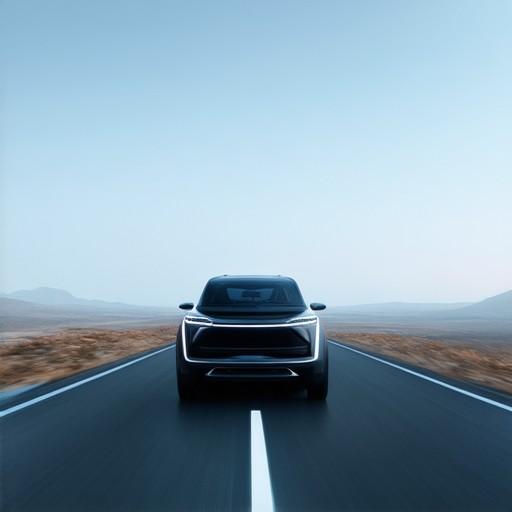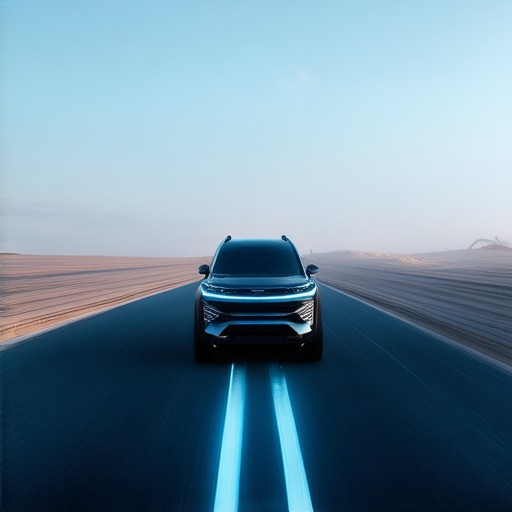SUVs are versatile vehicles designed for both on-road comfort and off-road capability, but their unique needs mean that selecting the right tire options is crucial for optimizing performance, safety, and efficiency. Whether you’re considering luxury tire options, budget-friendly choices, or specialized all-terrain tires, understanding the differences between tire types and their suitability for SUVs can make a significant difference in your driving experience. From all-season tires to run-flat tires, there are numerous options tailored to meet the demands of SUV ownership. In this comprehensive guide, we’ll explore everything you need to know about SUV tire options, including how much they cost, whether all-terrain tires are suitable for daily driving, and the latest trends in tire technology. By making informed decisions about your SUV’s tires, you can enhance both safety and performance on the road.
Key Takeaways
– Which SUVs Feature Run-Flat Tires? Many luxury SUVs, such as BMW, Mercedes-Benz, Audi, Lexus, Cadillac, Infiniti, and even some Toyota models, often come equipped with run-flat tires for enhanced safety and reliability.
– Pros of Run-Flat Tires: Offer superior safety in emergencies, providing peace of mind and improved handling compared to traditional tires.
– Cons of Run-Flat Tires: Higher cost, stiffer ride, potential impact on fuel efficiency, and reduced performance in adverse weather conditions.
– Why Are Spare Tires Less Common? Modern vehicles prioritize safety, efficiency, and design, often omitting spare tires to reduce weight, improve aerodynamics, and simplify maintenance.

Do SUVs Need Special Tires?
SUVs, or Sport Utility Vehicles, often require specialized tires due to their unique characteristics compared to passenger cars. While regular tires can technically be used, many SUV owners opt for dedicated SUV tires to maximize performance, safety, and durability.
- Load Capacity: SUV tires are designed to handle heavier loads, which is essential for carrying cargo or towing trailers. Regular tires may not meet the weight requirements for these tasks.
- Traction and Durability: SUV tires feature deeper treads and stronger sidewalls, providing better grip on uneven surfaces and resisting punctures and tears.
- Driving Conditions: If you frequently drive off-road or in adverse weather conditions, SUV-specific tires are better suited to handle the challenges.
- Size and Width: Many SUVs require larger or wider tires to accommodate their size and provide optimal handling. Standard tires may not fit properly or offer enough support.
Choosing the right tires for your SUV involves considering factors like your vehicle’s weight, intended use (on-road vs. off-road), and the specific features you prioritize, such as fuel efficiency or winter performance. Always refer to your vehicle’s owner manual or consult a professional tire installer for recommendations tailored to your SUV’s needs.
How Much Do 4 SUV Tires Cost?
The cost of 4 SUV tires can vary based on several factors, including the brand, type of tire, and size.
Factors Influencing Tire Costs
- Brand: Name-brand tires like Goodyear, Michelin, or Bridgestone typically cost more than private-label options.
- Type of Tire:
- All-Season Tires: $80 – $120 per tire
- Winter Tires: $130 – $180 per tire
- Performance Tires: $140 – $200 per tire
- Size and Model: Different sizes and specific models can significantly impact pricing.
- Installation Fees: Additional costs for mounting and balancing, ranging from $50 to $100, depending on the location.
Pricing Examples
- All-Season Tires: $320 – $480 (for a set of 4)
- Winter Tires: $520 – $720 (for a set of 4)
- Performance Tires: $560 – $800 (for a set of 4)
Considerations
- Check for promotions or discounts offered by retailers or manufacturers.
- Compare prices online and at local stores to find the best deal.
- Always verify the correct size and specifications required for your SUV.
For the most accurate pricing, visit our tire price guide or contact your nearest authorized dealer.

Are All-Terrain Tires Good for Daily Driving?
All-terrain tires are primarily designed for off-road use, offering improved traction and durability on uneven surfaces. While they excel in handling rough terrain, daily driving performance may vary depending on factors like road conditions and tire maintenance.
Pros of All-Terrain Tires for Daily Driving:
- Durable Construction: All-terrain tires are built to withstand rough conditions, making them a reliable choice for everyday use.
- Excellent Traction: Their aggressive tread pattern provides better grip on wet, icy, or uneven surfaces, enhancing safety.
- Long-Lasting Wear: Designed for heavy-duty applications, they often perform well on paved roads despite their off-road focus.
Cons of All-Terrain Tires for Daily Driving:
- Reduced Comfort: The stiff sidewalls and deep treads may result in a bumpy ride compared to smoother tires.
- Higher Operating Costs: They tend to wear out faster on smooth roads, leading to more frequent replacements.
- Less Fuel Efficiency: The increased rolling resistance can affect mileage, though the impact may vary between vehicles.
For drivers considering all-terrain tires for daily use, weigh the benefits of improved traction and durability against potential downsides like reduced comfort and higher costs. If your commute involves frequent off-road trips or challenging weather conditions, all-terrain tires are a solid choice. Otherwise, stick to specialized tires designed for on-road performance to maximize comfort and efficiency.
Explore Incubus Wheels for premium options tailored to your vehicle’s needs.

Which SUVs Come with Run-Flat Tires?
Run-flat tires are increasingly becoming a standard feature in many SUVs, offering enhanced safety and peace of mind during emergencies. Here’s a list of SUVs that commonly come equipped with run-flat tires:
- BMW SUVs : Most BMW models, including the X3, X5, and X6, feature run-flat tires as a standard option.
- Mini SUVs : Mini vehicles like the Clubman and Countryman often include run-flat tires due to their sporty and premium nature.
- Mercedes-Benz SUVs : The GL-Class and GLE-Class SUVs typically come with run-flat tires, adding to their robust safety features.
- Audi SUVs : Higher trims of the Q5 and Q7 usually feature run-flat tires, catering to drivers seeking advanced safety technology.
- Lexus SUVs : The LX luxury SUV often includes run-flat tires, reflecting its commitment to high-end safety features.
- Cadillac SUVs : Models like the CT6 and XT6 may come with run-flat tires, emphasizing their competitive edge in safety.
- Infiniti SUVs : The QX80, a premium large SUV, frequently includes run-flat tires as part of its advanced safety package.
- Toyota SUVs : While less common, some Toyota SUVs like the Sienna minivan and select RAV4 trims may offer run-flat tires in specific configurations.
It’s essential to verify with the manufacturer or dealership to confirm whether run-flat tires are standard or optional on your preferred SUV model, as availability may vary by region and model year.
What are the negatives of run-flat tires?
While run-flat tires offer convenience and peace of mind, they come with several drawbacks that potential buyers should consider:
- Higher Cost:** Run-flat tires are generally more expensive than conventional tires, often costing upwards of $500 per tire depending on the vehicle and model.
- Stiffer Ride:** These tires are designed to be durable and provide excellent support, but they can result in a harsher ride quality, particularly in vehicles with larger wheels (20″ or 21″).
- Weight Impact:** The added material and structure required for run-flat capabilities can increase the overall weight of the vehicle, which may affect fuel efficiency and handling performance.
- Adverse Weather Handling:** While they perform well in most conditions, run-flat tires can struggle in extreme weather scenarios like heavy snow or deep mud, potentially reducing traction and control.
- Maintenance Requirements:** Due to their reinforced construction, run-flat tires may require more frequent inspections and rotations to prevent uneven wear and damage accumulation.
- Replacement Challenges:** In the rare event of a puncture or sidewall damage, replacing run-flat tires can be more complex and may require specialized tools or knowledge, potentially delaying repairs.
- Environmental Concerns:** The production and disposal of run-flat tires can contribute to environmental waste, as they are not as easily recyclable as traditional rubber tires.
- Balancing Issues:** The increased weight and unique construction of run-flat tires can sometimes make it difficult to achieve proper vehicle balance, potentially affecting stability and braking performance.
It’s important to weigh these negatives against the benefits of run-flat tires based on your driving habits and vehicle usage. For instance, if you frequently encounter rough roads or worry about flats, run-flat tires might be a worthwhile investment. However, if you primarily drive in urban or smooth conditions, traditional tires may suffice and could save you money in the long run.

Why Do New Cars No Longer Have Spare Tires?
Spare tires are increasingly absent in modern vehicles due to several factors:
- Safety Considerations
- Removing spare tires simplifies emergency situations, as fewer drivers attempt DIY repairs, reducing risks associated with improper handling.
-
Weight Reduction
- Spare tires and tools add significant weight, impacting fuel efficiency and performance. Eliminating them can lower a car’s weight by up to 50 pounds.
-
Aerodynamic Efficiency
- Without a spare, vehicles can achieve better aerodynamics, enhancing speed and fuel economy, crucial for modern efficiency demands.
-
Maintenance Costs
- Dependence on roadside assistance or tow trucks may reduce wear and tear on vehicles, potentially lowering maintenance costs and extending lifespan.
-
Design Evolution
- Modern designs feature advanced suspension and materials, allowing optimized structures that enhance ride quality without the need for spares.
-
Temporary Mobility Solutions
- Many cars now use space-saving alternatives like temporary spares or inflation kits, optimizing storage and reducing weight.
Industry Trends
- Leading manufacturers like Toyota, Honda, and Tesla have transitioned to spare-free designs, reflecting consumer preferences for lightweight, efficient vehicles.
This shift underscores a balance between safety, efficiency, and design innovation, aligning with contemporary automotive trends and consumer expectations.




0 Comments